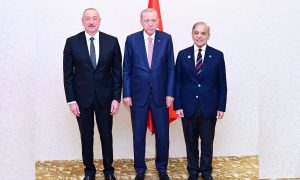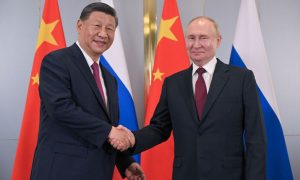UNITED NATIONS: In a historic display of solidarity, eighty nations joined forces to voice their shared concern regarding the violation of women and girls’ rights in Afghanistan during the 78th meeting of the United Nations General Assembly. Led by influential nations such as the United Arab Emirates, Australia, Japan, Spain, Chile, the European Union, and 74 other UN member states and observers, this united front issued a joint statement urging the Islamic Emirate of Afghanistan to uphold women and girls’ rights within the framework of both Islamic principles and international human rights.
The joint statement strongly criticized the Islamic Emirate’s edicts related to women, branding them as a form of systematic discrimination, oppression, and violence. The participating nations called upon the interim Afghan government to guarantee the comprehensive, equal, and meaningful engagement of women and girls in the public and political spheres of Afghanistan.
Lana Nusseibeh, the Permanent Representative of the United Arab Emirates to the United Nations, emphasized, we call on the de facto authorities to allow women and girls to exercise their rights and contribute to the social and economic development of Afghan society in accordance with international human rights laws and teachings of Islam.
The statement underlined that the Islamic Emirate’s edicts contradicted both Islamic values and universal human rights, countering the spokesperson of the Islamic Emirate, who claimed that women and girls’ rights in Afghanistan were protected under Sharia law.
Zabiullah Mujahid, the spokesperson of the Islamic Emirate, stated, “Those rights of women and girls which have been given to them by Islam have never been violated and will never be violated either. The Islamic Emirate considers it its obligation to correct women’s rights in the country.”
However, scepticism remains. Muhammad Sangar Amirzada, a prominent political analyst, expressed doubts, stating, “We have seen tens of statements and declarations which have had no result. The Islamic Emirate should make a decision whether they want to live with the rest of the world or not.”
Prior to this joint statement, the UN Rapporteur for Afghanistan’s human rights, Richard Bennett, and representatives from various nations at the UN Humanitarian Council had already expressed their apprehensions regarding the restrictions on women and girls’ rights to education and work. They appealed to the caretaker Afghan government to safeguard human rights, especially those of women and girls.
























